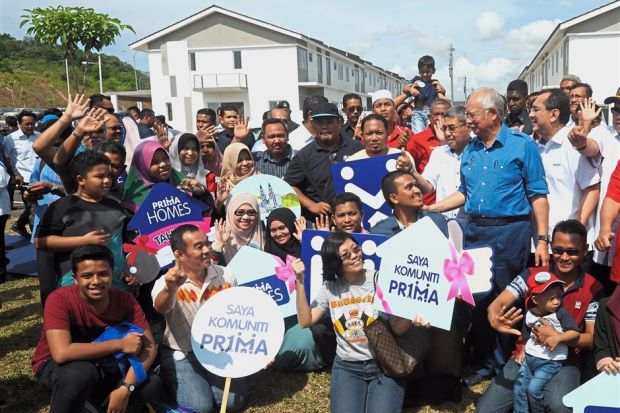For decades, the government, looking out at a primarily rural population, focused its housing and social benefits programmes at the rural poor, applying resources to the greatest need. This pattern became inertia after a time. When the population shifted from majority-rural to majority-urban, the underlying needs changed.
To Prime Minister Datuk Seri Najib Razak’s credit, as with all his reform programmes, he shifted the Government’s emphasis from historic to current needs. So it is that the 1Malaysia Housing Programme (PR1MA) is an attempt to grapple with a very real problem presented by today’s Malaysia: Where will the urban, working poor and middle class live?
In many cities, the cost of housing had increased too far and too fast to allow working Malaysians to keep up. (As bad as this sounds, the alternative — that their salaries had kept up — would mean much higher inflation, its own social ill.) Leveraging the idea that subsidies and Government programmes should flow to those most in need regardless of race and location, the Government launched the PR1MA programme last July, to bring affordable housing in good neighbourhoods to the rakyat.
This is not an insignificant effort, and is not merely a subsidy. It represents the policy and social truth that people in stable, affordable housing produce better educational outcomes, healthier and smarter children, and contribute meaningfully to personal and national economic development. It is designed to entice developers to produce quality housing on Government-owned property, thereby producing quality housing on which the Government can protect its investment. New owners will have to pay back the loans for these houses, but will be able to afford to do so.
It is of course no surprise that Pakatan Rakyat — otherwise always in favour of subsidies to urban dwellers — would oppose this programme. It is an effective poverty-fighting and real-income increasing tool. It is good policy, and a first step toward stabilising and boosting urban dwellers in the face of a growing economy. It is a way to ease some of the short-term — but significant — pains of a growing economy on those vulnerable to sudden price increases.
It also endangers Pakatan’s claim that the Opposition pact alone cares for urban dwellers. It cuts into their fixed deposit of voters. No matter how good the policy, it must be opposed outright, not made the subject of debate and suggestions for improvement.
Apparently unable to bring themselves to contradict themselves, Pakatan has turned to somewhat ridiculous claims. First among these is that the Government is simply handing away money to private developers and the wealthy. The criteria for the programme are strict — individuals earning not more than RM6,000 monthly, the loan totalling 105 per cent of sale value (to allow for legal fees), and a lock-in (no-sale) period of ten years. They are also designed to keep prices under control, minimise the use of properties as mere investment vehicles, and to direct these resources to those in need.
The second objection is no more logical: The Government is wasting its money on this programme. This too is absurd. The Government retains the right to recollect the property if the owner defaults on the loan, and the social and economic benefits of stable housing will far outweigh any short-term costs.
PR1MA is a good step toward helping those most in need. Like any endeavour, it will almost certainly require adjustment over time. However, if there is anything Najib has demonstrated, it is a determination not to be bound to the way things can be done before, if reform will help Malaysia and Malaysians.

